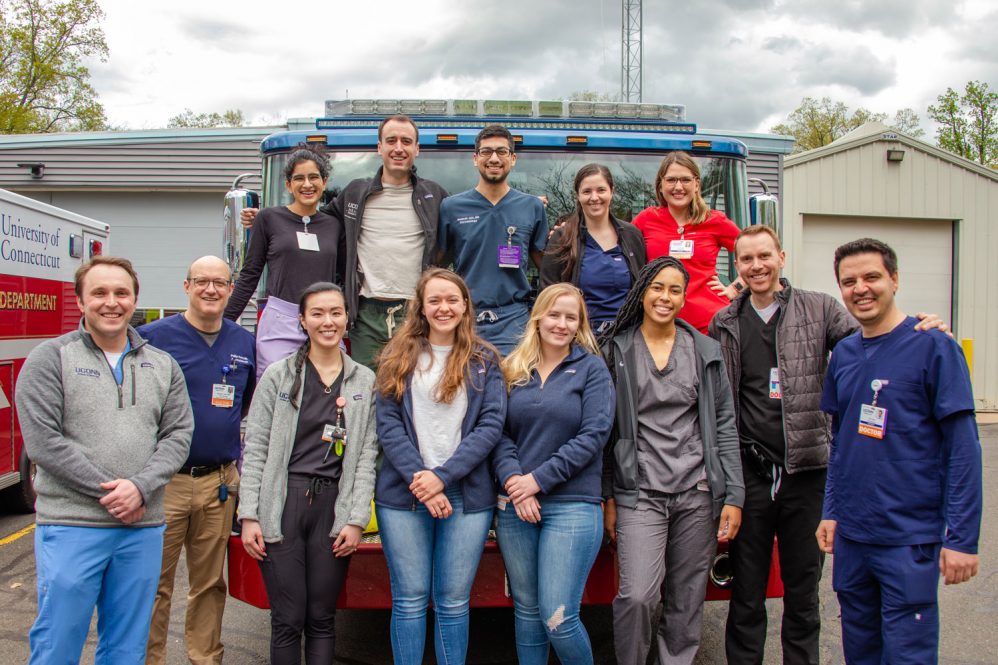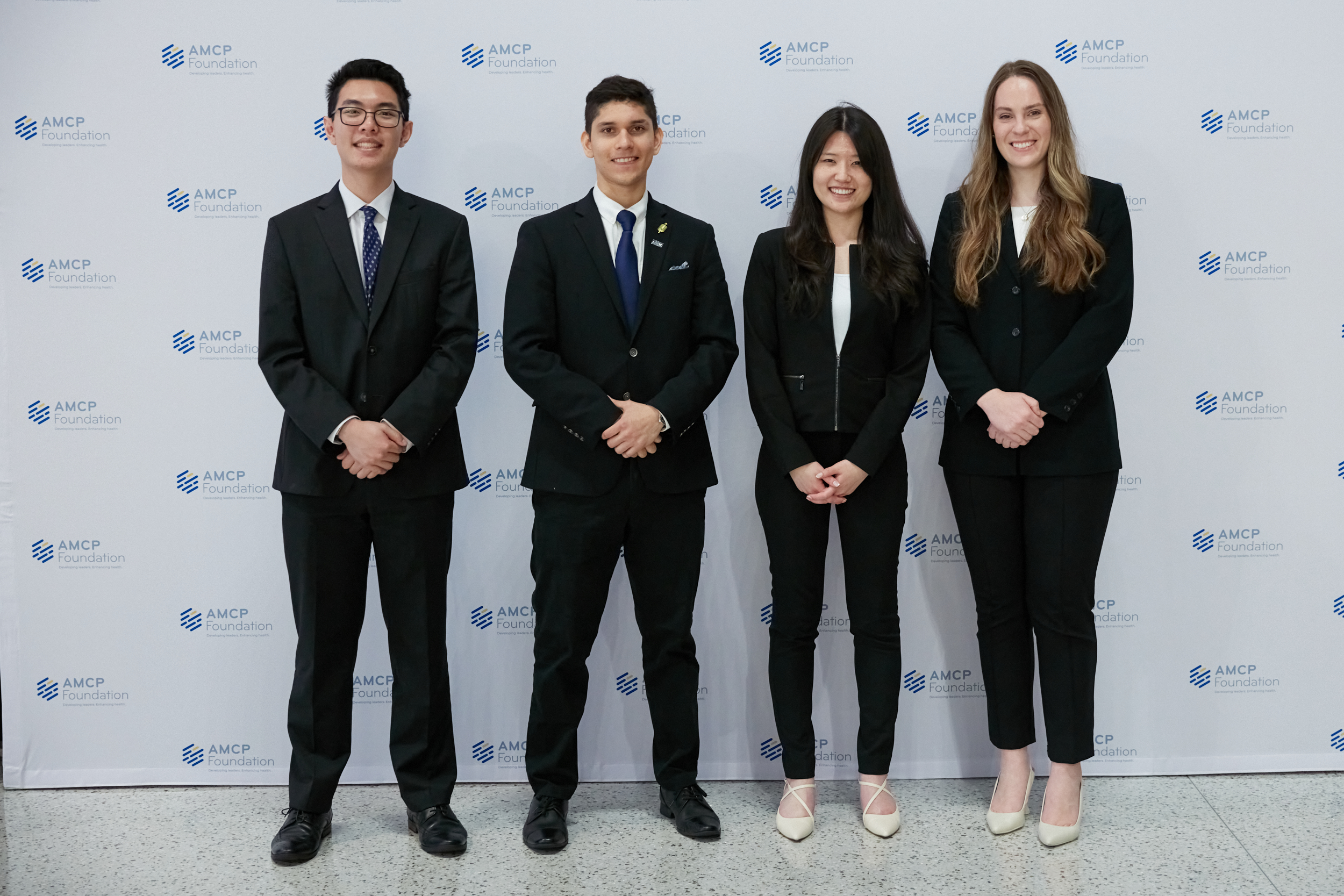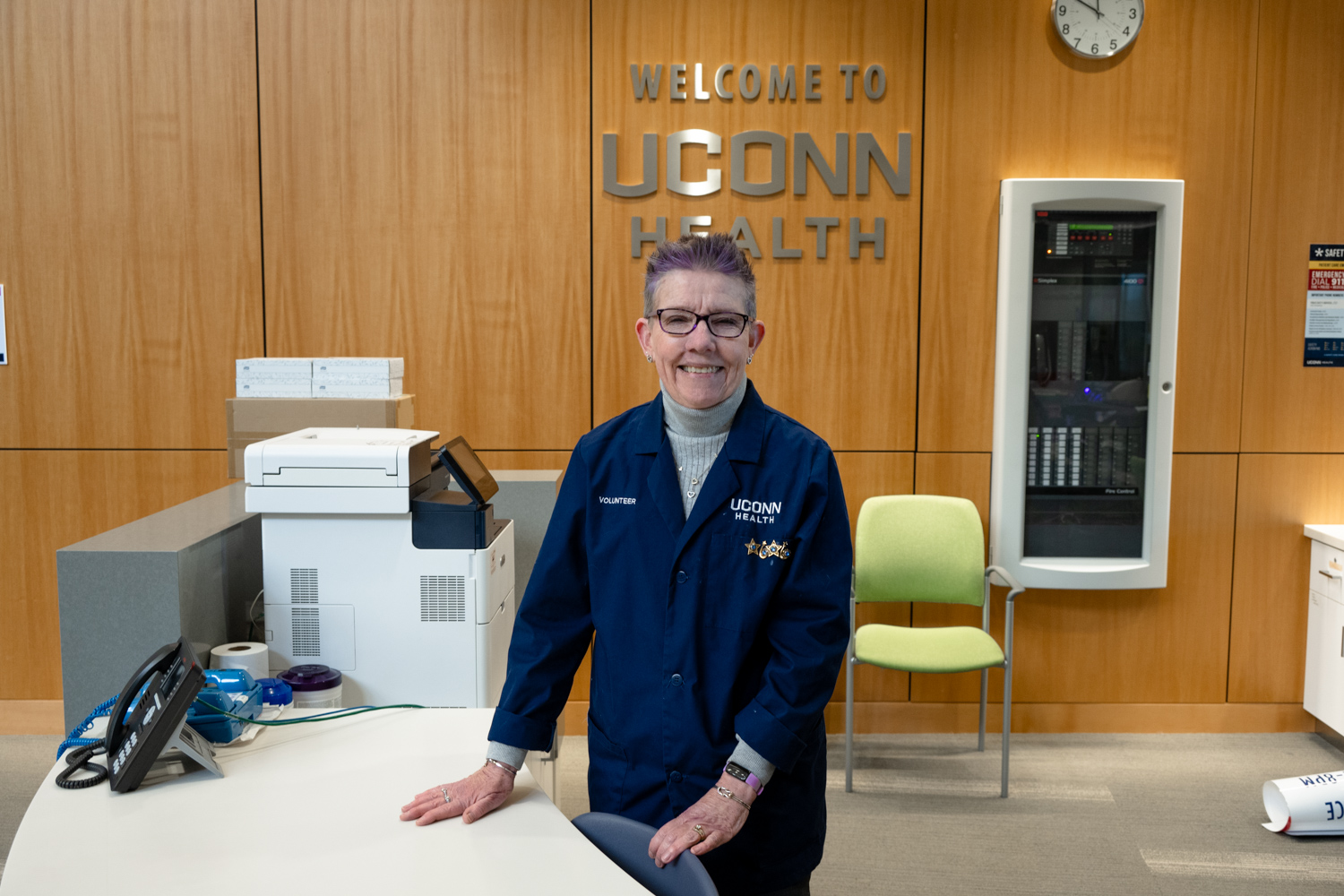The occupational hazards of firefighting are many, including some that may not be so obvious, such as melanoma.
Fittingly, on a day that has become known as Melanoma Monday, the first Monday of May, UConn Health dermatologists, dermatology residents, and medical students held a free skin cancer screening event exclusively for firefighters at UConn Fire Station 122, the firehouse on the UConn Health campus.
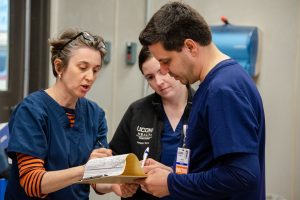
“Firefighters in their job are exposed to many carcinogens, which, when they burn, particlize and aerosolize, so they’re breathing them in, they’re eating them,” says Dr. Christine Kannler, a Massachusetts dermatologist who started organizing skin cancer screenings for firefighters in her home state six years ago. “And then also the soot gets on the skin and they absorb it through their skin. Science has shown that firefighters after a fire have polycyclic aromatic hydrocarbons in their urine, they have PFAS in their blood, and they have dioxin in their blood as well. These are all carcinogens.”
Polycyclic aromatic hydrocarbons are naturally occurring chemicals that result from burning coal, oil, gas, wood, garbage, and tobacco. PFAS stands for per- and polyfluorinated alkyl substances, synthetic chemicals that are very slow to break down and that are used in varying degrees in a wide range of products, including firefighting foam. Dioxins are environmental pollutants.
Kannler lost her brother, who was a firefighter, to esophageal cancer at age 37. She has become an advocate for cancer prevention in firefighters and volunteers with the American Academy of Dermatology’s skin cancer screening program.
The firefighter screenings at the UConn Health firehouse were a joint effort with the AAD, UConn Health Department of Dermatology, and the group Firefighters Cancer Support Network.
“Benzene and other preservatives and additives that firefighters can experience through their day-to-day occupational exposures can lead to an increased risk of melanoma,” says Patrick McMullan, a fourth-year medical student who helped organize the event.
Over a two-hour period, a group that included six dermatology residents and two attendings provided screenings for 46 firefighters, both from UConn and municipal fire departments.
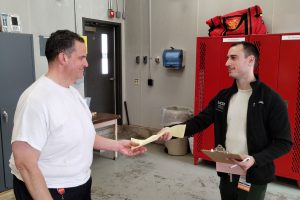
“We’re happy for the opportunity to be able to screen our firefighters here and in the community for skin cancer,” says Dr. Neelesh Jain, a third-year UConn dermatology resident. “There’ve been studies that have shown increased rates of melanoma in firefighters. The firefighters who responded immediately at 9-11 had a much higher rate of skin cancer than those who responded seven days later. But even without that kind of event, firefighters are at higher risk for skin cancer.”
Even though the firefighters’ susceptibility to melanoma is not a secret, getting them screened regularly can be challenging. UConn Fire Chief William Perez says offering screenings at the firehouse can be a draw.
“I could hear them say, ‘I feel a little bit more comfortable with just going to a firehouse and just going to get checked real quick and get out of there,”‘ Perez says.
Dr. Philip Kerr, chair of the Department of Dermatology, was one of the attendings who provided screenings.
“I think it’s fantastic that, as an institute of higher learning and also of delivering top-quality care, that we’re having this session here for the UConn Health firefighters as well as local firefighters in the area, and in doing so, increasing the awareness,” Kerr says. “Folks are going to train here and then move on to other areas of the state, other areas of New England, other areas of the country, and then carry that knowledge with them, and maybe continue this on in years forward, running their own skin cancer screenings wherever they end up going.”
